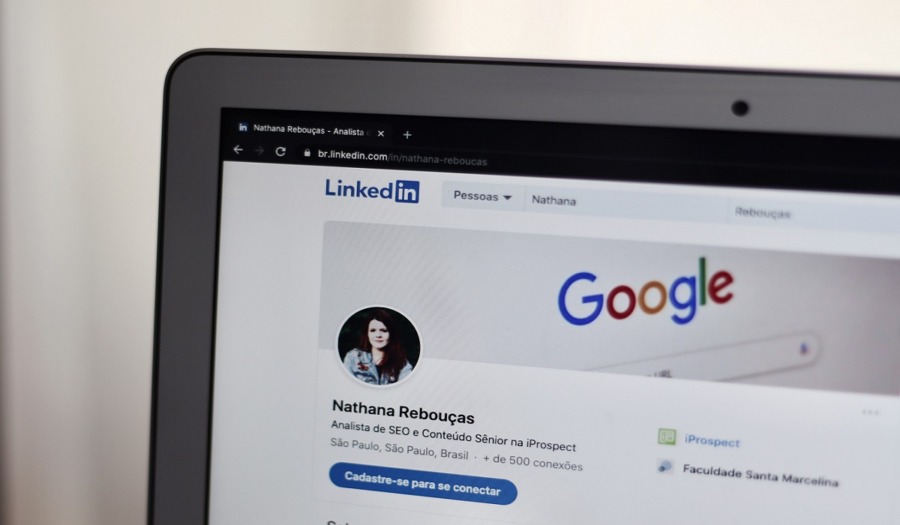Like It or Not, Your LinkedIn Profile Picture Affects Your Job Search
- Nick Kossovan
- The Art of Finding Work
- Trending
- September 8, 2023

Back in the day, including a headshot with your resume was expected. As anti-discrimination and labour laws started being passed, this practice stopped since pictures could potentially lead to discrimination. Then LinkedIn officially launched on May 5, 2003. If you believe a headshot (profile picture) may lead to hiring discrimination, then you likely see LinkedIn as a step back.
A fun fact: Leonardo da Vinci is credited with creating the first resume. His “resume” was essentially a cover letter written to Ludovico Sforza, the Duke of Milan, a potential employer, in 1482, touting his inventions. It was not until the 1930s that the modern resume became common.
LinkedIn, which I believe is much more relevant to employers than your resume, is not going anywhere anytime soon, nor will it be removing its profile picture feature, which all social media platforms have. Debating the merits of LinkedIn is unproductive. Having a fully optimized LinkedIn profile is an unavoidable requirement for job seekers.
I am sure you are aware that first impressions are everything. Whether you like it or not, within mere seconds, you are looked at, judged, labelled and categorized. As humans, we see, make assumptions, and pass judgment. You do it, I do it, we all do it. I do not know anyone who does not, at least in part, judge a book by its cover.
Your LinkedIn profile — your 24/7/365 business card — picture is the first impression recruiters and employers will have of you and will use to assess whether to read your profile.
If you have self-limiting beliefs and hang-ups that make you not want to have a profile picture as part of your LinkedIn profile — surprisingly, I still see profiles without one — and you are not willing to “get over it,” then you need not read further. The lack of a profile picture makes it difficult to take the person seriously. Either you want employers to take you seriously, or you do not care whether they do.
I get it that many people are concerned about possible racial, ethical, or sexual discrimination if they include a profile picture. My response: If an employer rejects your candidacy because of racism, ageism, or sexism, they are not an employer you want to work for.
A profile picture enables the reader to get to know you better; it gives your name a face. Keep in mind, since it is the only visual representation they have, it makes “human sense” for a reader to form an opinion about a person based on their LinkedIn profile picture.
Besides helping the reader to get to know you, your LinkedIn profile picture:
- shows your profile is active and legitimate.
- along with a results-oriented profile, shows you are confident.
The first impression your LinkedIn profile makes will influence whether the reader will take the time to read your profile. (According to studies, hiring managers glance at a resume for seven seconds before deciding whether to read further or discard it; the same applies to your LinkedIn profile.)
Now, you probably want to ask me, “Nick, is landing a job easier if you are attractive?”
I would be misleading you if I said “No.” What person does not like to be around attractive people? The truth is, which you already know, if not at least strongly suspect, beautiful people are more likely to get hired, receive better performance evaluations and get paid more. On the other hand, attractive people are often stereotyped negatively, such as being shallow, demanding, and hard to manage.
Your LinkedIn profile picture’s overall quality and professionalism are more important than your appearance. Pretty eyes and a Hollywood smile have no chance against solid, hard skills and a track record of achieving results. Competencies are the most critical factor for “most” (keyword) hiring managers, keeping in mind hiring managers are, like you, human and therefore have their respective biases.
Here are some tips on how to take a profile picture that will impress hiring managers and make them want to read your profile:
- Start with the right frame.
A good photo begins with the right frame. Position yourself correctly in your picture. Your profile photo should not show more than your head, neck, and shoulders.
- Choose the right background.
Background matters. For example, a green background makes you appear likable, open, and cooperative. Red conveys passion and urgency. Blue suggests trust and calmness. An office background indicates professionalism and a corporate mindset.
- Wear a casual but professional outfit.
When choosing what you will wear, think about how you would dress for an interview. Dress for the position you are aiming for.
- Smile!
Smile for the following reasons:
- To establish trust
- To appear friendly and approachable
- To make a connection with the reader
- To show confidence
One more thing: Upload the correct LinkedIn photo size, which is 400 x 400 pixels.
According to LinkedIn research, having a picture makes your profile 14 times more likely to be seen and 36 times more likely to be contacted. Without a profile picture, you increase your odds of not being contacted. (READ: lost opportunities)
_________________________________________________________
Nick Kossovan, a well-seasoned veteran of the corporate landscape, offers “unsweetened” job search advice. You can send Nick your questions to artoffindingwork@gmail.com.








